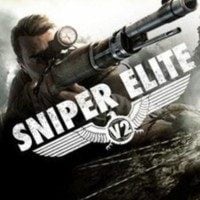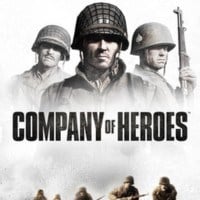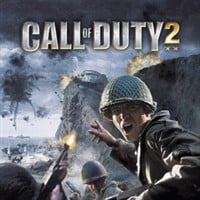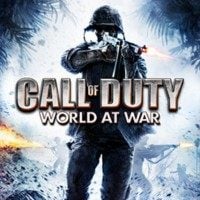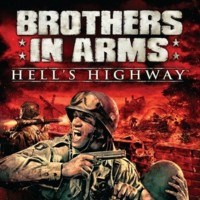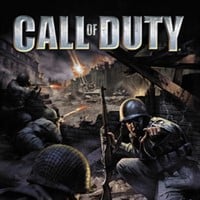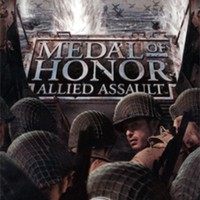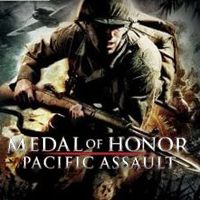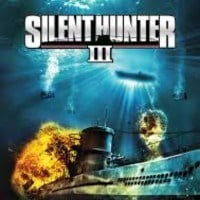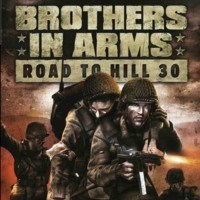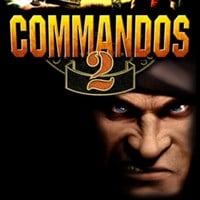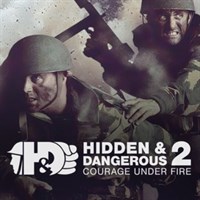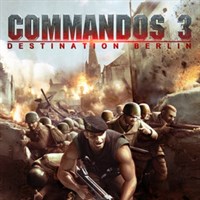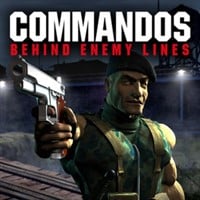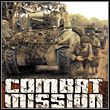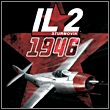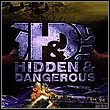Dirty Dime - Top 10 World War II games and game series
Lately, World War II seems to have been forgotten by game developers, but the bad times may be over with the upcoming Call of Duty: WWII. Here’s our list of Top 10 best games set during World War II.
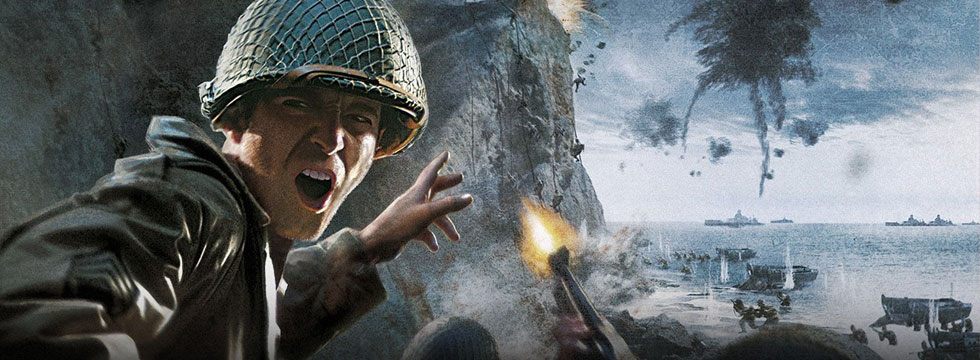
WWII-themed games were all the rage in the first decade of the 21st century. While some forerunners of the trend could be seen since the end of 20th century, it was the release of Medal of Honor: Allied Assault and Call of Duty that started the entire avalanche. Fast forward a few years and the gamers are flooded with exploits of brave soldiers fighting their way through Normandy, Ardennes, Germany, Holland, North Africa, eastern front, Crete, Greece, Sicily and Italy, Indo-china, Pacific islands, and a million of other spots which 70 years ago were considered important enough to send soldiers to die on them.
Remembering the anniversary of the beginning of World War II, our editorial staff has decided to pick ten best games and series that are must-knows for any fan of the period. While the basic idea was to vote for entire franchises, in some cases, when a title stood vastly apart from the average quality of the series, we’ve placed it as a separate entry on our list. Please consider the fact that our selection includes only titles that opted for a realistic depiction of the horrors of that great conflict. This means things like Wolfenstein or other multiplayer-only titles were unable to make it to our list.
The order in which the games are presented is not random and reflects the results of our voting – the titles are listed beginning with the least votes.
Warm-up – titles worthy of your attention
First, we’ll list some honorable mentions of WWII gaming – titles that fell short of being groundbreaking, but it’s good to have heard about them nevertheless.
Call of Duty: World at War
After the lukewarm reception of Call of Duty 3 Treyarch was given a chance to repair their image by working on the next installment. Fortunately, World at War turned out to be vastly superior to its predecessor; unfortunately, it also turned out to be the last WWII installment in the series for a time. From that point on, the brand was to follow the road pioneered by 2007 Call of Duty 4: Modern Warfare.
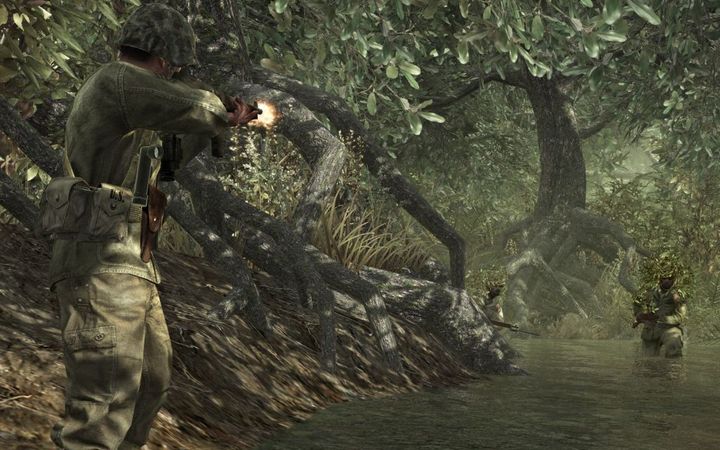
Medal of Honor: Pacific Assault
After the phenomenal Allied Assault, the Medal of Honor franchise wanted to repeat that gigantic success by moving the action to the other hemisphere. The battle against the Imperial Japanese forces, although even more intense and spectacular than previously, was overshadowed by its biggest rival – the first installment of Call of Duty. The rest is history, as they say.
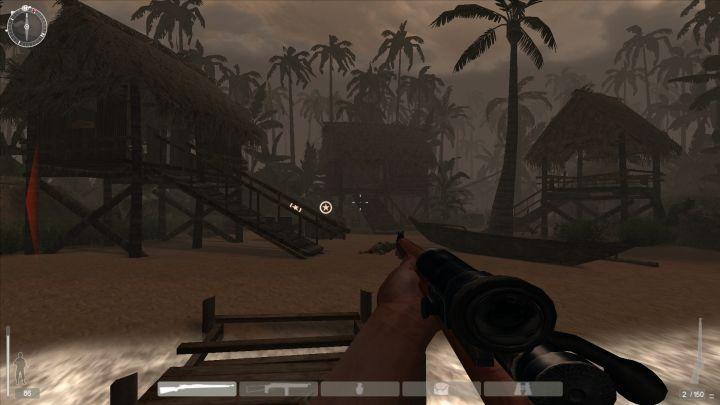
Sniper Elite (series)
Sniper adventures on the battlefields of World War II began from its end. In the first installment, we were given the opportunity to crawl through the devastated ruins of Berlin right before the city’s capitulation. What’s interesting, we were doing so in a German uniform, killing Soviet soldiers among others, as ordered by the American Office of Strategic Services (OSS) – an organization commonly depicted in games set during World War II. The second installment reused the setting, but dropped the false-flag aspect – this time, we were dressed in Allied uniform. Luckily, later installments moved us to warmer regions of the conflict – North Africa and occupied Italy.
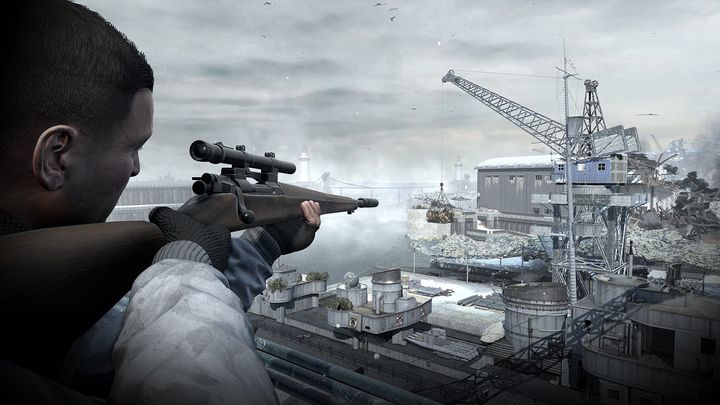
The Saboteur
A bit unusual WWII games representative in our selection. The Saboteur is a rather decent sandbox game, in which we could visit occupied Paris and its vicinity, destroy some German outposts, and race in a period sports car across country roads. Unfortunately, the game is underappreciated. Its protagonist, a man of Irish descent, is one nasty, but also charismatic, bastard.
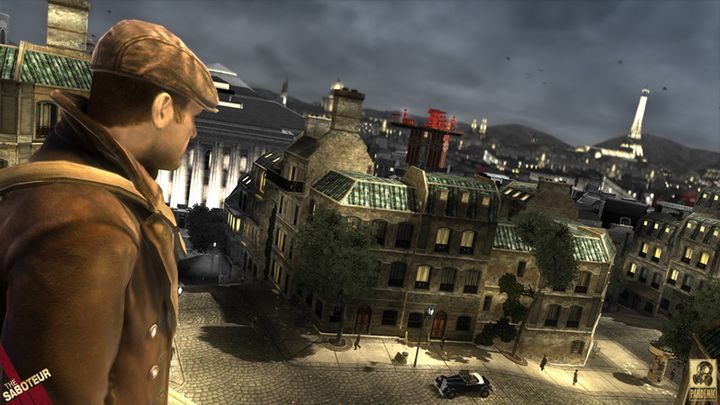
Steel Panthers
It’s time for some strategy. Steel Panthers is a game from Strategic Simulations Inc., a distinguished developer from the ‘80s and ‘90s behind plenty of iconic titles from that period. SSI was a synonym of quality when it came to both RPG and strategy games. Complex gameplay, great design of battles set across all fronts of World War II, good depiction of units and their capabilities, and an editor that allowed creation of our own maps won the game a large, dedicated fanbase.
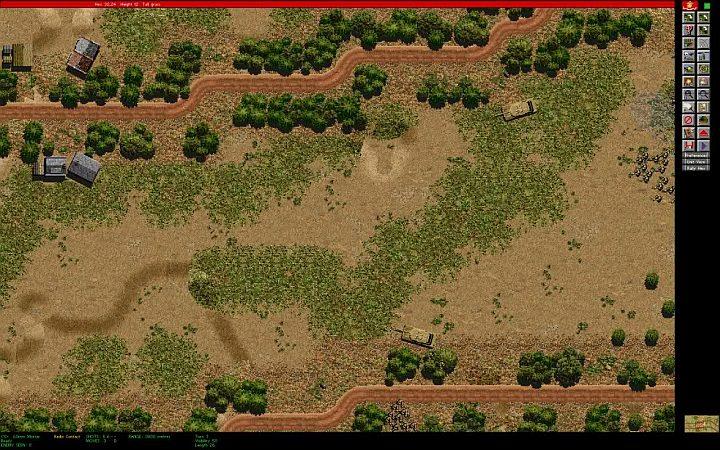
Panzer General (series)
Although today a hexagonal grid is nothing more than black magic to most younger gamers, at the time of its release, and for many years later, pretty much everyone played Panzer General. The game’s attractiveness was grounded in pleasant visuals and simplified – compared to its “dice and token” competition – mechanics. While not as complex as in Battleground or V4Victory, this may be the reason it will be chosen over the former two by a bored strategy game fan.
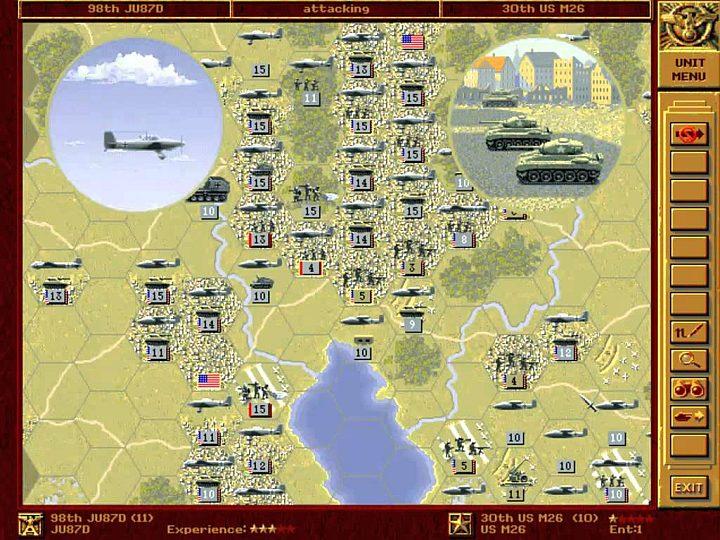
10. Medal of Honor: Allied Assault
- Medal of Honor: Allied Assault – PC (2002)
- Medal of Honor: Allied Assault – Spearhead – PC (2002)
- Medal of Honor: Allied Assault – Breakthrough – PC (2003)
Saving Private Ryan had yet to begin post-processing when the developers at Dreamworks Interactive began working on the WWII shooter game that would leave a mark on the video game industry. The watchful eye of Steven Spielberg himself as the scriptwriter shaped the story of Lt. Jimmy Patterson, an OSS agent operating across entire occupied Europe late into the war. Medal of Honor wasn’t simply born out of the success of the movie starring Tom Hanks – both titles were developed roughly at the same time, but the game’s PlayStation release took place almost a year after the first screening of the movie.
Dreamworks had one more title in development; a sequel, known as MoH: Underground, had the gamers play the part of agent Manon Batiste, but the title, same as its predecessor, remained faithful to the console roots of the series.
And while the origins of the Medal of Honor franchise are distinctly console-based, it was the outstanding success of the PC release of Medal of Honor: Allied Assault in 2002 that changed the shooter genre for the next several years, across which FPS action games telling the stories of brave allied soldiers battling Axis forces flooded the shelves, eventually leading to surfeit.
But before the fans have had enough, we took part in the D-Day landing as Lt. Mike Powell. This is probably the most recognizable mission from Allied Assault, clearly inspired by the scene depicting Omaha beach landing from Steven Spielberg's movie blockbuster. This was the breakthrough; the game’s culminating point that has been replayed time after time simply to soak in the atmosphere of the few frantic moments when we were being showered in a hail of German fire coming from fortified bunkers up on the beach.
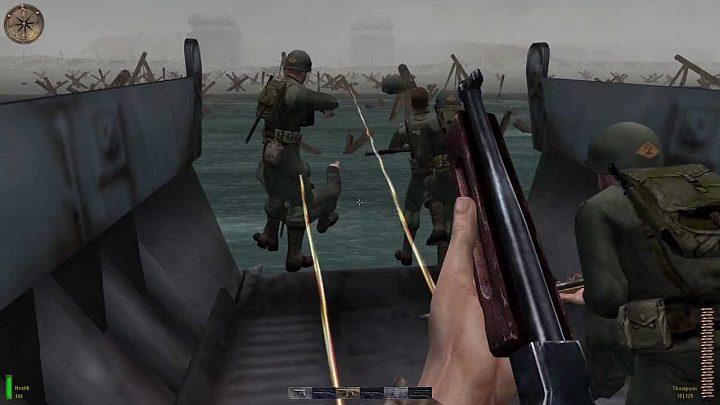
The general opinion is that the final shape of Medal of Honor Allied Assault was mostly influenced by Vince Zampella and Jason West, both of which left the studio soon after the game was completed, along with twenty other 2015 Inc. employees, and went on to found Infinity Ward – a studio that would become one of the most prominent FPS developers and change the industry’s approach to WWII games.
As I’ve already mentioned, in its beginnings Medal of Honor was a console-exclusive series. Let’s take a moment to check out two games that came out in the golden age of PlayStation 2 – Medal of Honor: Frontline and Medal of Honor: European Assault. While not as engaging as Allied Assault, both games will certainly expand your knowledge of the franchise. It should also be mentioned that Frontline was included as a bonus to some editions of the PlayStation 3 versions of Medal of Honor. What’s interesting is the fact that the game was upgraded to HD quality and it supported widescreen.
9. Hidden & Dangerous (series)
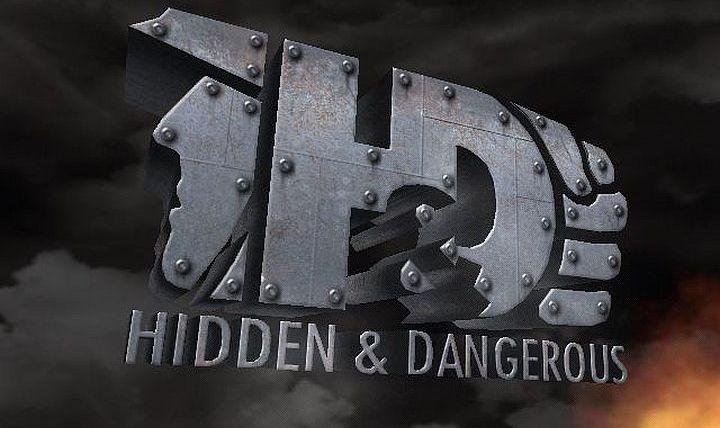
- Hidden & Dangerous – PC (1999) / Dreamcast (2000) / PlayStation (2001)
- Hidden & Dangerous: Devil’s Bridge – PC (2000)
- Hidden & Dangerous 2 – PC (2003)
- Hidden & Dangerous 2: Sabre Squadron – PC (2004)
1999 saw PC and Dreamcast releases of a title few would be able to walk past unfazed. Tactical shooting, taking command of four British SAS commandos, and incredibly evocative atmosphere. Veterans probably still remember the first mission, the downpour, and a certain little detail that blew everyone’s minds – the chests of our soldiers were moving as they breathed. That one detail made those rough and badly shaped (by our modern standards) characters seem alive, almost tangible at the time.
When it came to freedom of choice and making our own decisions, the franchise stood side by side with Rainbow Six and Ghost Recon as one of the first tactical shooters; although it needs to be said that both major installments of the series were criticized for numerous bugs and AI issues, both in allied and enemy soldiers.
Both installments, the more user-friendly first and the more complicated (even overcomplicated, according to some people) second were developed by the Czech studio Illusion Softworks. The same team that gave us Mafia shortly after, and later its sequel under the 2K brand.
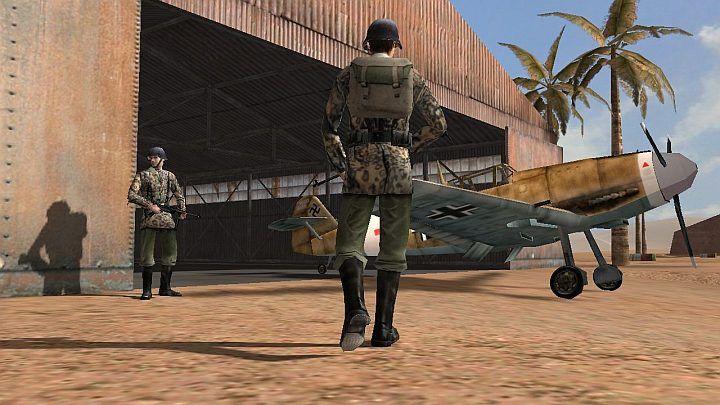
The Hidden & Dangerous series had us fight in France, Norway, Burma, Arctic, Africa, and even Czechoslovakia, where, dressed in German uniforms, we defended the country from Russian soldiers.
In 2003, the first installment, along with the Devil’s Bridge expansion, was made available for free as Deluxe edition, featuring improved visuals, slightly modified mission contents, and a mission editor. You can download it from our FTP server.
After you’ve completed every mission available in both major installments of Hidden & Dangerous and their expansions (unless this Czech series is not up your alley) you can check out the Deadly Dozen series. The gameplay premise is rather similar – we visit several famous WWII fronts, and the game is based on the movie blockbuster under the same title, starring Telly Savalas among others.
8. Il-2 Sturmovik: 1946
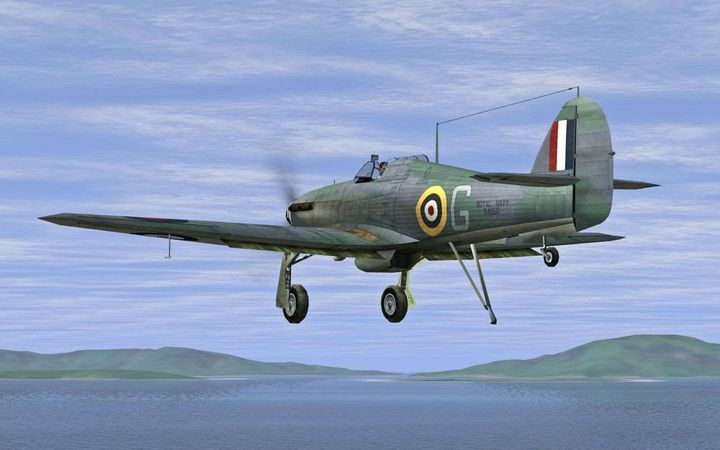
- Il-2 Sturmovik – PC (2001)
- The Forgotten Battles – PC (2003)
- The Forgotten Battles – Ace Expansion Pack – PC (2004)
- Pacific Fighters – (2004)
Flight simulators were always somewhere in the vicinity of the WWII setting. Across the genre’s 40 years of history, we’ve seen numerous noteworthy titles, such as 1942: Pacific Air War, Aces Over Europe, B-17 Flying Fortress, or Microsoft Combat Flight Simulator, to mention just a few. None of the aforementioned, however, managed to build a fanbase larger (except perhaps some newer productions such as War Thunder) than that of Il-2 Sturmovik, from the Russian developer Maddox Games.
Originally, Sturmovik was released in 2001, and could boast 20 flyable aircraft types, but the version that deserves to be mentioned the most is the 2007 Il-2 Sturmovik: 1946, which included all of the previously released add-ons and expansions. The final number of playable aircraft rose to more than 230 types, including numerous prototypes. And let’s not forget about hundreds of combat missions, several campaigns, and new theatres of operation, such as Far East and the Pacific.
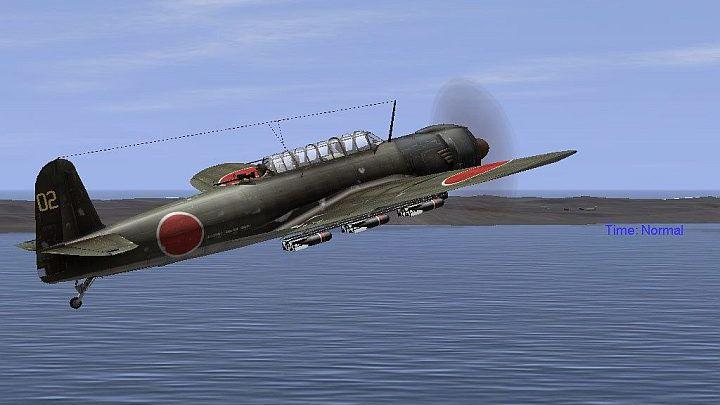
Sturmovik is a complex flight simulator for pretty much anyone. Thanks to numerous realism customization options offered by the game, it can be played by both people interested in quick, arcade aerial duels and gamers who like their ammo limited and their engines overheating.
Today, the game can be found half-free on the Internet, but those of you who wish to enjoy better visuals, or are simply curious of the newer genre representatives, should take a look at Il-2 Sturmovik: Battle of Stalingrad and its expansions. Another interesting proposition would be its older brother Il-2 Sturmovik: Cliffs of Dover, which, thanks to a modding group being given access to the source code, has been recently given a new life.
7. Silent Hunter III
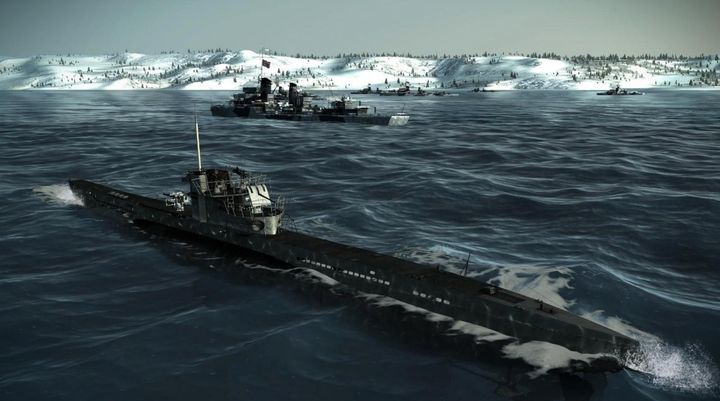
- Silent Hunter III – PC (2005)
- Silent Hunter III: Seawolves (2005)
If we consider flight simulators a niche genre in the industry, then what about submarine simulators? Probably some older gamers will be able to recall Silent Service or Aces of the Deep, but recently there’s been only one franchise that can be considered a worthy successor to the genre: Silent Hunter. Although the series includes as many as five major installments, U-boat, I-class, Gato, and Balao fans have unanimously hailed Silent Hunter III as the best part of the cycle.
Submarine simulators are usually sandboxes to the T. The same goes for this title, where we play the part of a U-boat captain, whose task is to patrol the high seas searching for allied ships to sink. The more BRT we send to the bottom the higher we will go as a Kriegsmarine officer.
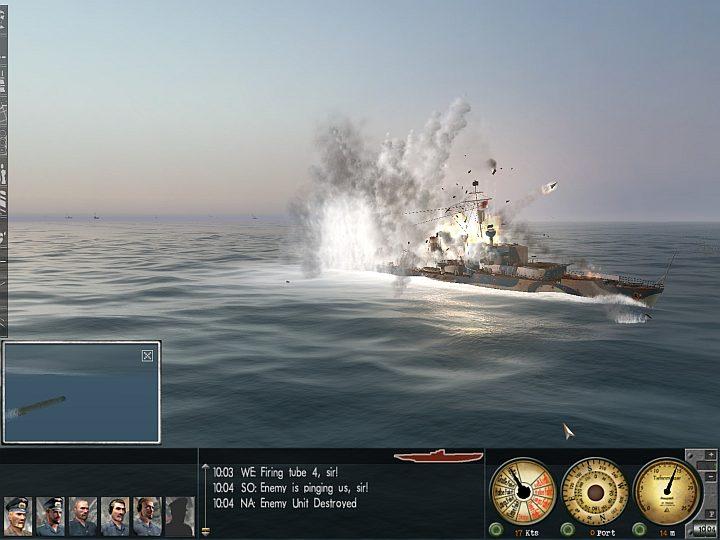
To be honest, this is not an easy, welcoming genre. Such games always required practical knowledge of the ship and navigation, ability to calculate course and speed of moving ships as well as torpedo targeting solutions, and – which may be the biggest hurdle for some people – patience. Patience is what matters the most to a true seawolf.
There’s virtually no alternative to Silent Hunter III. The only other viable choice would have to be Silent Hunter 5: Battle of the Atlantic. While the game came under fire for its numerous bugs and issues soon after release, the developers nevertheless strived to make it a better game. Today, the game’s got some years under its belt, but it remains an interesting proposition when it comes to contents and visuals alike. Retro fans can also try Microprose’s Silent Service. Both installments are easily available on a leading digital distribution platform.
6. Combat Mission (series)
- Combat Mission: Beyond Overlord – PC (2000)
- Combat Mission 2: Barbarossa to Berlin – PC (2002)
- Combat Mission 3: Arfika Korps – PC (2003)
- Combat Mission: Battle for Normandy – PC (2011)
- Combat Mission: Battle for Normandy – Commonwealth Forces – PC (2012)
- Combat Mission: Fortress Italy – PC (2012)
- Combat Mission: Fortress Italy 0 Gustav Line – PC (2013)
- Combat Mission: Red Thunder – PC (2014)
- Combat Mission: Final Blitzkrieg – PC (2016)
The history of small-scale WWII tactical games began in 1977 with the board game known as Squad Leader. The map, covered in a hexagonal grid, depicted small facilities and locations, in which each grid field was equal to 40 meters of real-life terrain. In fact, at a risk of excessive simplification, it can be said that all later games, including digital ones, were the result of what was created by Avalon Hill designers in the 1970s.
As technology progressed, tactical games started to transition into the third dimension and grow progressively more complicated. One of such games was the 2000 PC title Combat Mission: Beyond Overlord. The creators of the game took extra care to recreate the setting with the maximum possible amount of realism, both when it came to military equipment used by both sides of the conflict and tactics.
Beyond Overlord, as the title suggests, focuses on the allied campaign, featuring scenarios taking place right after the D-Day landing in Normandy. The battles were turn-based, the player gave the orders to his units and observed the results of his decisions during a 60-second-long period of real-time action. The game also offered active pause.
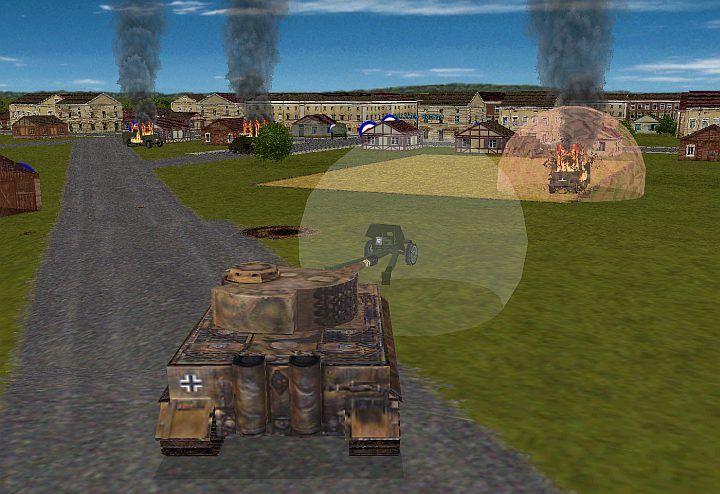
Battlefront.com, the company that came up with the idea of making a 3D tactical game, decided to go all the way after the success of their first game and released subsequent installments, focusing on different fronts of WWII. Combat Mission 2: Barbarossa to Berlin had us fight on the eastern front, and Combat Mission 3: Afrika Korps across North Africa, Crete, Sicily, and Italy.
Those of you looking for an alternative to Combat Mission can take a look at the Close Combat series, in which we command squad-sized units. The latter franchise is even older that the work from Battlefront.com; it is nevertheless constantly developed. Its latest installment, titled Close Combat: Gateway to Caen was released in 2014, marking the anniversary of the Allied landing in Normandy.
5. Commandos (series)
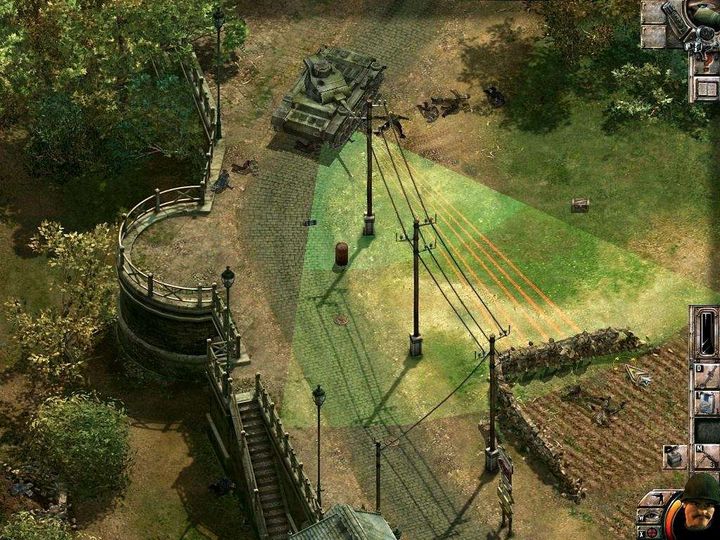
- Commandos: Behind Enemy Lines – PC (1998)
- Commandos: Beyond the Call of Duty – PC (1999)
- Commandos: Men of Courage – PC (2001) / PlayStation 2 / Xbox (2002)
- Commandos: Destination Berlin – PC (2003)
- Commandos: Strike Force – PC / PlayStation 2 / Xbox (2006)
Here’s a recipe for an instant hit: take the premise from The Lost Vikings by giving each of your characters a different set of skills, add some small soldiers in isometric view like in Cannon Fodder, slap some decent visuals on it, and then set the whole thing during World War II. That’s what the Spanish developer Pyro Studios came up with when they worked on Commandos: Behind Enemy Lines back in 1998.
I suppose every gamer has either played an installment of the Commandos series or has at least heard of the series. This real-time tactical game has us control six very different soldiers. Among them we have a tough green beret, a convicted criminal serving the British Army as a driver, an Aussie diver, a demolitions expert, a sniper, and a member of the French resistance.
The key to achieve our objective lies in using the right skills and remaining under cover for as long as possible. Sneaking past guards is made easier by the ability to see their field of view. It was a big thing at the time; highly original, creative, and able to entertain the player for hours.
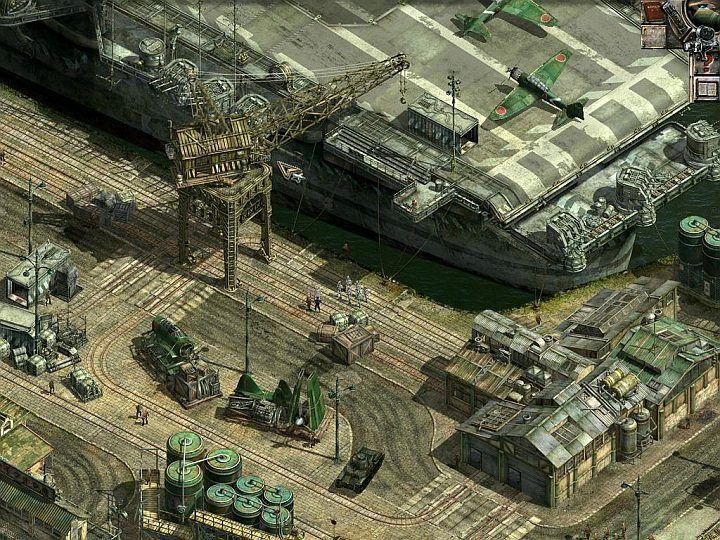
The first Commandos turned out to be such a hit that it quickly spawned an expansion, entitled Beyond the Call of Duty, and later on second and third installment, the latter visibly weaker. In 2006 the developers tried to lead the series in a new direction and prepared a shooter game, subtitled Strike Force, but in hindsight it would have probably been better for it never to have happened.
In this case, it would be quite problematic to find a reasonable alternative. There are virtually no other similar games set during WWII, and later attempts to resurrect the genre in the Wild West or in Sherwood are not fit for this selection. That’s why for an alternative we can only propose the evergreen movie classic The Dirty Dozen. Other than it being a movie, it’s the closest we can get.
4. Company of Heroes (series)
- Company of Heroes – PC (2006)
- Company of Heroes: Opposing Fronts – PC (2007)
- Company of Heroes: Tales of Valor – PC (2009)
- Company of Heroes 2 – PC (2013)
- Company of Heroes 2: The Western Front Armies – PC (2014)
- Company of Heroes 2: Ardennes Offensive – PC (2014)
- Company of Heroes 2: British Forces – PC (2015)
Once again, we begin at the Omaha beach. Only this time, we are commanding a whole lot of troops and not just a single soldier. Company of Heroes impressed us with its visuals, which ranged from nice wide-angle camera shots to rather decent game engine cut-scenes, intensity, and the general idea. No wonder, since this spectacle was prepared by Relic Entertainment, bona fide RTS experts and developers of such classics as Homeworld and Warhammer 40.000: Dawn of War.
Saving Private Ryan got old. In the first half of 2000s everybody was looking up to Company of Brothers. This 10-episode long TV drama depicted a scene of a night landing of the 101 Airborne Division, and so the game had to include one as well. The fully-3D, destructible game world was really something – everybody was playing this one, not just strategy game fans.
First of the game’s expansions offered us the option to lead the soldiers of British 2nd Army, which spilled its blood on the beaches of Normandy and later on during the vicious fight for Caen. But that’s not all. We were also given a German campaign, in which we eradicated the allied soldiers during the operation Market Garden, a bold but only partially successful Allied attempt to capture the bridges on Rhein and gain a foothold to strike at the heart of the Third Reich.
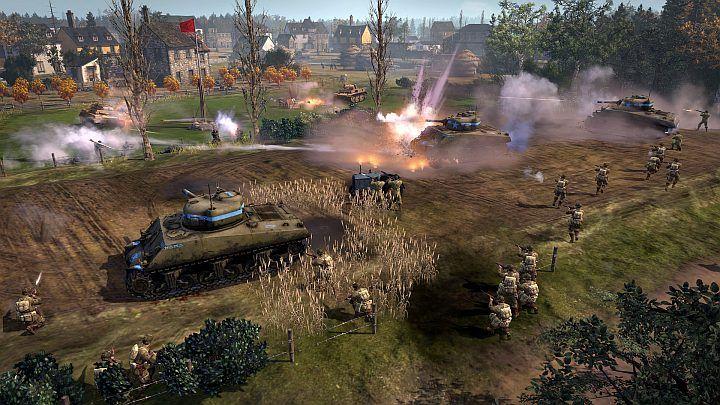
Tales of Valor featured three new campaigns, including the battle of Falaise. To keep things balanced, we could also play the part of a commander of the German Tiger tank and his three crewmen, lighting up American Sherman tanks.
The success of Company of Heroes, which came following the release of Soldiers: Heroes of World War II from Codemasters, had a part in spawning at least a few other interesting series. Among them, we should mention the Men of War series, especially its first installment. Unfortunately, each subsequent installment of the franchise and expansions came with ever degrading quality.
3. Brothers in Arms (series)
- Brothers in Arms: Road to Hill 30 – PC / PS2 / Xbox (2005)
- Brothers in Arms: Earned in Blood – PC / PS2/ Xbox (2005)
- Brothers in Arms: Hell’s Highway – PC / PS3 / Xbox 360 (2008)
- Brothers in Arms: D-Day – PSP (2006)
- Brothers in Arms: DS – NDS (2007)
- Brothers in Arms: Double Time – Wii (2008)
Another game beginning with the allied landing in Normandy and TV drama-like action. Its role model? Once again Company of Brothers and the depiction of Captain Winters’ men assaulting the area of Brecourt Manor, where a key battery of four artillery guns shooting at Utah beach was placed. Brothers in Arms is a very successful response of the video game industry to a market that was beginning to get crammed with WWII-titles.
The key to success was a bit different here than with typical frantic shooters. The game had to be played more tactically. Germans who were hiding behind covers had to be flanked. This series required the player to take up good positions, be it before the firefight or after it broke out. And in the background we had an interesting plot and personal dramas of our men.
This personal and emotional approach to the plot was probably best depicted by the latest installment of the series – Hell’s Highway. The dilemmas faced by Hartsock and Baker in the previous installments are the best proof that the developers wanted to show something more than the deafening noise of the battlefield. The initial sequence in the hospital corridor will certainly be remembered for long by many.
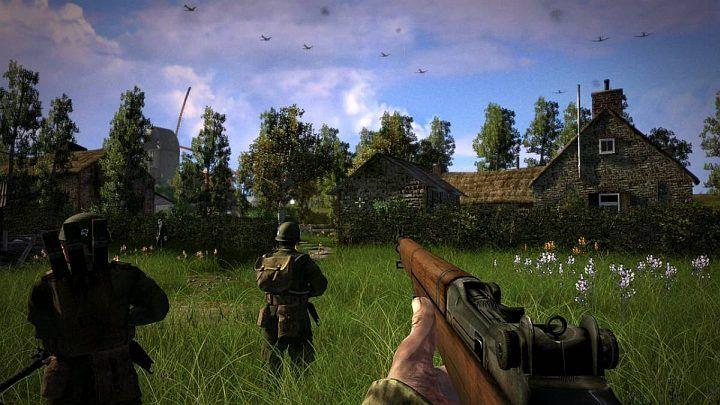
With the years, Ubisoft seemed to have forgotten about the brand, and the Wii exclusive Brothers in Arms: Double Time is nothing more than a collection of missions from Road to Hill 30 and Earned in Blood. And even if shortly after the release (and success) of Tarantino’s Inglourious Basterds you heard info about Brothers in Arms: Furious 4 being in development, the news is most certainly no longer valid.
The Brothers in Arms series remains an original contribution of the video game industry and no other developer had the courage to follow in its footsteps; at least when it comes to WWII used as background. There were several imitators set in modern times, though, such as the Full Spectrum Warrior series. Still, the atmosphere is vastly different, which leaves me with Medal of Honor: Airborne as an alternative proposition. A game from a different genre, but focusing on airborne operations just like Brothers in Arms.
2. Call of Duty 2
- Call of Duty 2 – PC / Xbox 360 (2005)
- Call of Duty 2: Big Red One – Xbox / PlayStation 2 / Gamecube (2005)
While Call of Duty changed WWII shooters forever, Call of Duty 2 was the cherry on top of the cake and a confirmation than the previous work from Infinity Ward was something more than a fluke.
Call of Duty 2 introduced several novelties, the most important among them being probably the auto-healing mechanic – the player had to avoid damage for a few seconds to regain health. Medkits quickly became a thing of the past as other developers started borrowing the idea.
This time, we play as four different soldiers, taking part in three separate campaigns on different fronts of World War II. Two Englishmen, an American, and a Russian provide a decent, if basic, representation of Allied armies, and some levels, such as the battle of El Alamein or capturing Pointe du Hoc together with US Rangers will forever remain in the memory of gamers.
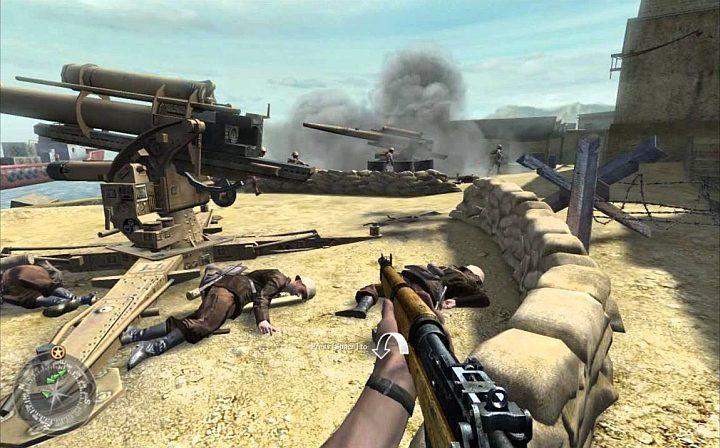
It should also be mentioned, looking at the recent controversy regarding the swastika symbol in Call of Duty: WWII, that also the German edition of CoD 2 had the symbol replaced with simple German crosses. Additionally, everything that could be associated with names like Hitler, Stalin, Rommel, and Third Reich, or words like nazi or kraut, was removed from the game.
If you haven’t had enough of intense battles in Call of Duty 2, you should probably try Call of Duty 2: Big Red One, a sixth-gen console exclusive. The game depicts the fate of the American 1st Infantry Division and, despite the number 2 in the title, focuses on a completely different story, with voices provided by the actors from the Company of Brothers TV drama among others.
1. Call of Duty
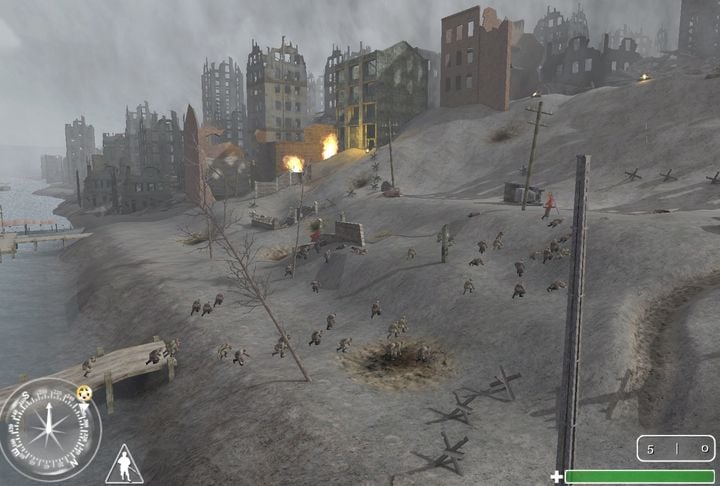
- Call of Duty – PC (2003)
- Call of Duty: United Offensive – PC (2004)
Our selection of the best WWII games/series began with Medal of Honor: Allied Assault and an information that two of its key employees, Vince Zampella and Jason West, decided to leave the studio and start their own business to show the rest of the industry how WWII games are made. Which they did. Infinity Ward created a work that not only showed a new direction to the entire genre, but also turned out to be a tremendous commercial success, spawning a whole new lively branch of entertainment, for which it is both loved and hated.
But let’s stop at Call of Duty for a moment. What’s the secret behind the game’s success? Well, it seems like the sheer scope plays a major role in that; the fact that the player is just a small cogwheel in the war machine, an irrelevant speck as compared to the events that unfold all around us. Second, we should mention the interactions with our brothers in arms and the feeling of a living, vibrant world around us. We may have been a speck, but that speck was surrounded by characters for whom it was important, a speck having its own place in the microuniverse of scripts and thrilling cut-scenes. Large-scale events required well-designed levels… and here’s where we get to the bottom of things – what sealed the fate of the competition was the fact that Zampella and West proved that they were the best when it came to skill and design.
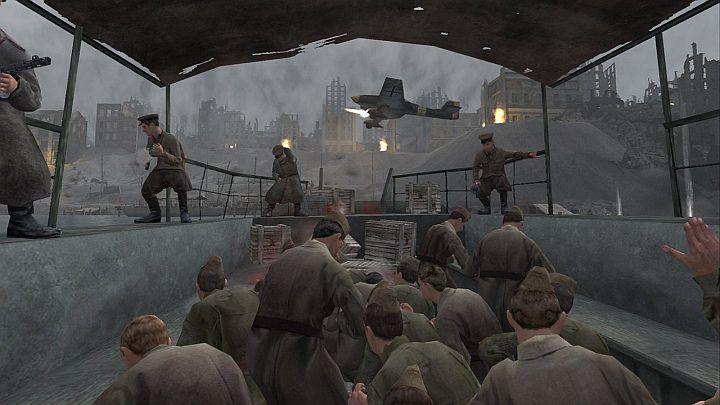
Just look at the game’s cover art. A US soldier is pointing his finger at us. It’s our turn; this is our chance. No matter whether we’re a G.I., a Tommy, or an Ivan, as the game offered three theatres of operation, showing us a glimpse of the chaotic nature of a real conflict for the first time in the history of digital entertainment. That was how everybody felt the day it was released, and we, blinded by its scope and deafened by the artillery shells falling nearby, were busy picking up our jaws from the floor.
Call of Duty is one of a kind and there is no viable alternative. It’s a must-play.

